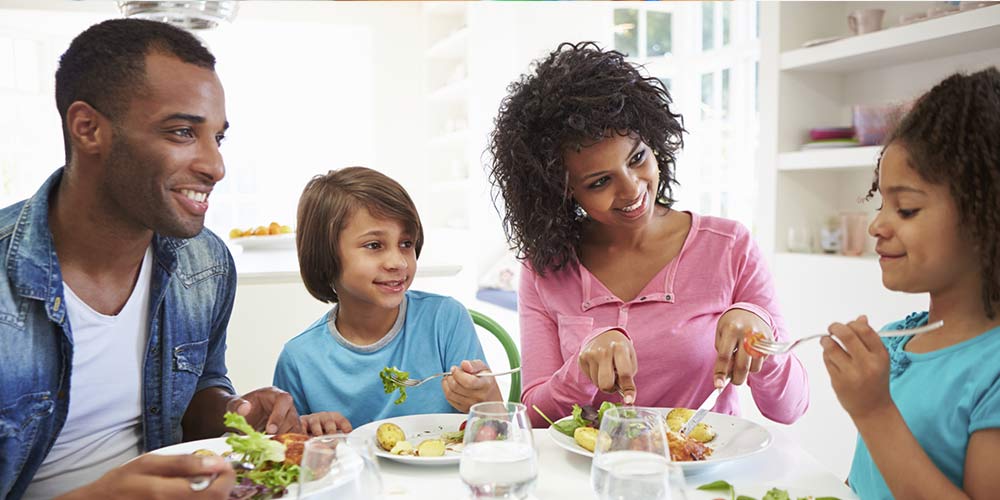When Rachel thought about it, she realized the interaction around her dinner table was negative with a continual focus on manners and diet issues. “But what am I supposed to do when the kids are being silly or are just eating chips and nothing else?” What children eat is important, but too much focus on diet can contribute to anxiety and relational tension. The big picture is that time with the family eating together is prime bonding time.
In most of life, eating is a social event. When people gather together, it’s usually around food. Why not start now to use mealtimes in your home to build relationships? Allow your family meals to be about bonding with your kids. Here are 8 ways.
1. Create a positive experience.
In many homes, this becomes more pronounced as children get older and schedules become more complicated. Resist the urge to take advantage of mealtime as a forum for discipline. While it may be necessary or helpful at times, be careful not to develop a negative pattern around the table. It’s been said that more meals are ruined at the dinner table than at the stove.
2. Eat at the table.
Coming to the table whether you’re hungry or not is important. When you call your child to come and eat and he says, “I’m not hungry,” you may be tempted to allow him to continue to play. But mealtimes are meant to be a family experience. You want to spend time together and enjoy your relationships.
3. Use mealtimes to share about the day.
Talk about things you’ve learned and ask the children to talk about their experiences. Children will learn valuable relationship skills such as listening, asking questions, talking, and telling stories. Gentle reminders about affirming others, not interrupting, or letting someone else speak can teach children how to carry on conversations and enjoy others in the process.
4. Take time to plan the social component of mealtime.
Save stories from the day, jokes or riddles, and think of questions you could ask that’ll get your kids talking. Some parents spend a lot of time preparing a meal but don’t prepare at all for the dialogue. As a result, the conversation may deteriorate rather quickly and opportunities to connect are missed.
5. Use stories—children learn from them.
After you share the ways you’re growing or incidents that made an impression on your day, children can apply them to their own lives. Laughing and being silly can create a positive view of family life. When appropriate, share how you have applied your faith and values in practical situations by the way you think or act. This helps children see that spirituality is a lifestyle.
6. Teach kids to move past their mealtime challenges.
Hyperactive or overly talkative youngsters can make civilized conversations difficult. Sibling conflict issues spill over into what might otherwise be pleasant family meals. Try gently to move things back on track. Redirect conversation and distract children by your enthusiasm and energy.
7. Model and instill manners.
Learning how to interrupt graciously, how to pass dishes to one another, and how to eat in a polite way are all important. Teach these lessons over time without emphasizing them at every single meal.
8. Excuse children who must be disciplined.
Tell them they are welcome to return when they can act appropriately at the meal. In the meantime, continue to enjoy conversation and relationship with the others who are there.
How have you been able to build relationships at dinner?










